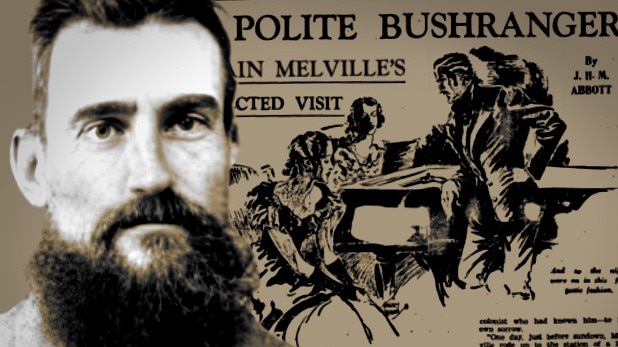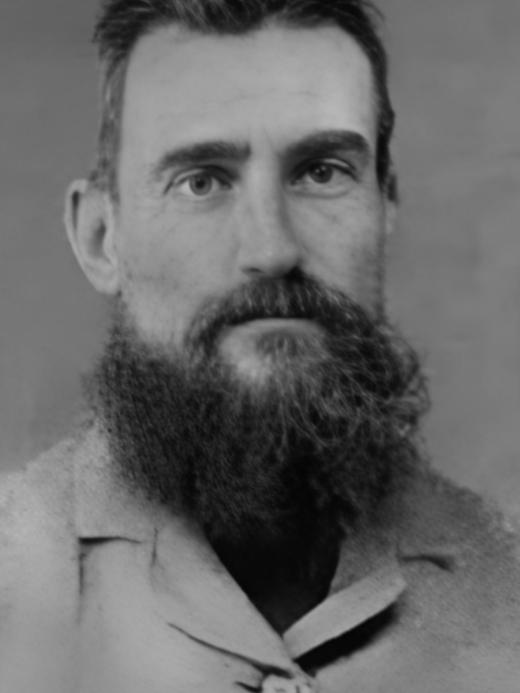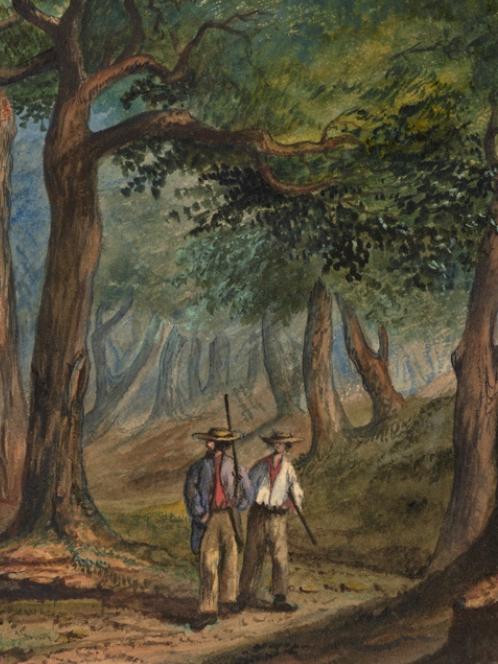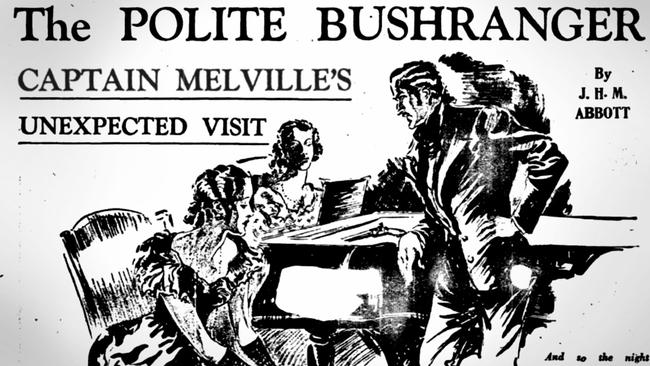Mitchell Toy: Captain Francis Melville was a bushranger and conman
The sharply dressed Captain Melville was a charmer with a sharp intellect. But the self-appointed gentleman was actually a thief and bushranger whose death remains shrouded in mystery.

Victoria
Don't miss out on the headlines from Victoria. Followed categories will be added to My News.
Captain Melville, a well-to-do Melburnian born in Scotland, was as debonair as they came.
A sharply dressed gentleman with a pointed tongue and unpredictable passions, his dashing frame and sharp intellect could charm any lady he tipped his hat at.
Never mind the fact he was not a gentleman at all, never reached the rank of Captain, wasn’t really called Melville and was actually a scoundrel, a thief and a bushranger.
The life of Melbourne’s original conman was varied and wild.
After being transported from Britain for stealing a potato pie (or so the legend has it), the man known as Captain Melville ran from custody and lived with an aboriginal tribe for a year.
He led a gang of bandits in the Black Forest near Macedon that raided cash-loaded carriages in the early days of the gold rush, giving the area a bad reputation for decades, despite being oddly polite to his victims.
He lived in a cave in the hills, from where he ran a small crime empire.
And when it all came to an end, his death left a mystery about whether or not he was murdered.
The Black Forest bandits


Francis Melville, whose real name might have been McCallum, was convicted at the age of 15, jailed in Britain and later sent to Hobart.
During his time at Port Arthur in Van Diemen’s Land, he came before a judge 25 times for bad behaviour and his sentence kept getting extended.
So he escaped and lived with indigenous people for a year, before his recapture.
Around 1851, calling himself Captain Francis Melville and sporting the appearance of a gentleman, he surfaced in Melbourne and embarked on a crime streak.
A newspaper noted of Melville after his career:
“He loved notoriety, and won it very easily; and although he was detested and feared by all who resided in the districts raided by him, he sometimes committed his depredations in such a way as to cause even those whom he was robbing to smile under the operation.”
Prim and proper, Captain Melville could lull his upper class victims into the belief he was a fellow gentleman, before robbing them blind.
On one occasion in 1853 he showed up at a remote station in Western Victoria, gave his horse to a stable servant, entered the house and told another servant to fetch the master.
The master entered the drawing room to find Melville sitting in his favourite chair, aiming a revolver at him.
But he wasn’t after money - not just yet.

Melville ordered the whole family, including the master’s daughters, into the drawing room.
Then he politely asked the daughters to play the piano before, astonishingly, Melville himself entertained his captives with a perfectly-played nocturne by German composer Felix Mendelssohn.
He only stopped and took up his gun when a noise was heard from the corridor and a police constable, perhaps roused by one of the servants, appeared in the doorway.
With that, Melville apologised to the young ladies for leaving so soon, and fled out a window.
He returned to the bush with police bullets zipping over his head.
But despite his taste for finer things, Melville was accustomed to living rough.
While terrorising the carriages that ran between Melbourne and the goldfields, his home was a cave in the Kooyoora hills.
Melville and a handful of accomplices were a bane to gold transporters in the Black Forest near Macedon, approaching encampments quietly and nicking what they could.
Their robberies made the Black Forest name send shivers down the spines of colonists and gold hunters for years.
But Melville also had a truly nasty streak.
And multiple occasions he shot at police with intent to kill, and was suspected of murdering two men during a robbery - a crime for which no firm evidence was ever found.
When he moved to the Geelong area in the mid 1850s, he was captured and jailed, and badly assaulted a prison guard while chained on a prison hulk.
After multiple unsuccessful attempts to escape captivity, one of which involved penning love letters to a female Irish criminal to convince her to assist in the plot, Melville was transferred to Melbourne Gaol.
Spared the noose, but hanged
Despite his long and violent rap sheet, Melville dodged capital punishment.
But in the end it was a flimsy blue handkerchief with red spots that did him in - he was found hanged by it in his cell.
Memory of his exploits have faded, although his assumed name is kept alive in a Melbourne restaurant named in his honour.
Still, his death was as much an enigma was Melville himself.
Having avoided the death penalty, and having slipped custody before, Melville had every reason to be optimistic about a new life on the run.
His suicide didn’t seem to make any sense.
It led many to speculate that Melville had been murdered - strangled in his cell and his body arranged to look like he’d hanged himself.
But that would require a killer with sufficient motivation and cunning to penetrate the prison, somehow bypass or infiltrate the system of guards, gain access to Melville and overpower a man accustomed to close fighting.
Although officially ruled a suicide, questions still waft around the death of Melbourne’s original conman, a fraud and a dreamer whose violent exploits weighed against his considerable charm.




